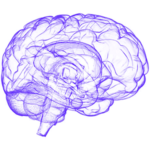 Can I get pregnant if I have epilepsy?
Can I get pregnant if I have epilepsy?
Yes! Women with epilepsy – just like women without epilepsy – are able to become pregnant and have children. Some women have separate medical conditions that make it harder to become pregnant. If you have epilepsy and do not have these conditions, your chances of becoming pregnant are similar to other women without epilepsy.
How long will it take me to become pregnant?
Studies have shown that epilepsy does not impact a women’s ability to become pregnant. Women with and without epilepsy who have been actively trying to become pregnant, should be able to do so, within one year. If you are having difficulty becoming pregnant after one year, speak with your health care provider (HCP) – you may have another medical condition impacting your ability to become pregnant.
If I become pregnant, will my children be healthy?
Yes, most women with epilepsy can have healthy children. However, there are some risks to pregnancy and childbirth.
Is it important for me to plan my pregnancy?
Yes, it is a good idea for people with epilepsy to plan pregnancies in advance. Pregnancy planning is associated with fewer pre-term births and birth defects. If you are planning a pregnancy, let all your doctors (i.e. neurologist, obstetrician-gynecologist, and primary care physician) know at least six months before trying to conceive. Your neurologist may want to make changes to your antiseizure medications to minimize your seizures and also protect the future baby.
I have heard of folic acid. Should I take a supplement during pregnancy?
Yes, it is also a good idea to begin taking a daily folic acid supplement at least six months before you begin trying to become pregnant and continue the supplement throughout the entire length of your pregnancy. Folic acid supplements are important to take during pregnancy because folic acid supplements have been shown to reduce the risk of birth defects and improve brain development among children of women with epilepsy. However, it is important that you speak with health care provider (HCP) before starting any new medications, supplements, or vitamins.
Will my child be at risk for a birth defect?
In the general population, the risk of having a child with a birth defect is 2-3% (2-3 out of 100 children will have a birth defect). Among women with epilepsy, the risk is higher at 4-8% (4-8 out of 100 children). The risk depends on the type of anti-seizure medication that is taken during the pregnancy. If you are thinking about becoming pregnant, it’s important to talk with your neurologist to develop a plan before you become pregnant. This can help minimize medication risks during pregnancy, while ensuring your seizures are well controlled.
Should I take any vitamins during pregnancy?
Taking a daily folic acid supplement during pregnancy has been shown to reduce the risk of birth defects and improve brain development among children of women with epilepsy. Speak with your doctors about starting a daily folic acid supplement before becoming pregnant.
Will my child be born with epilepsy?
People with epilepsy may wonder if their children will have epilepsy. In the general population, about 1-2 out of every 100 people have epilepsy (1-2%). Among mothers with epilepsy, 5 to 10 out of every 100 of their children (5%-10%) will have epilepsy. While there is an increased risk that your children may have epilepsy, the risk is still low. Your doctor may advise speaking with a genetic counselor for more detailed information about your risk of having a child with epilepsy.
What if I am not ready to become pregnant?
No one can tell you whether or not you are ready for pregnancy, only you can decide. If you are unsure about pregnancy, it may be helpful to use a highly reliable method of birth control or practice abstinence.
Our health guides are developed through a systematic, rigorous process to ensure accuracy, reliability, and trustworthiness. Written and reviewed by experienced healthcare clinicians from Boston Children's Hospital, a Harvard Medical School teaching hospital and consistently ranked as a top hospital by Newsweek and U.S. News & World Report, these guides combine clinical expertise, specialized knowledge, and evidence-based medicine. We also incorporate research and best practices from authoritative sources such as the CDC, NIH, PubMed, top medical journals, and UpToDate.com. Clinical specialists and subject matter experts review and edit each guide, reinforcing our commitment to high-quality, factual, scientifically accurate health information for young people.